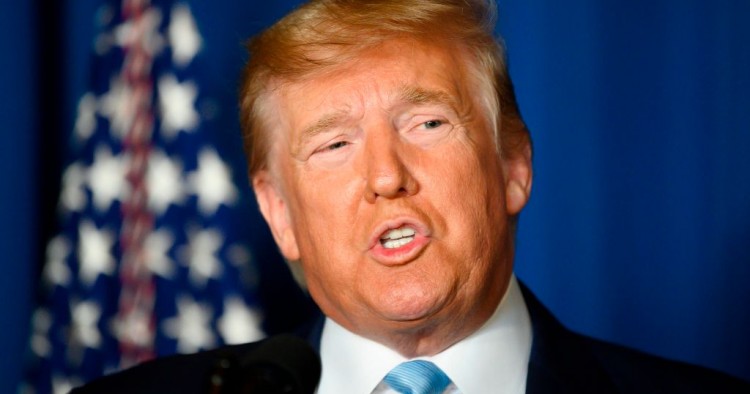Just when we thought we had a good understanding of President Donald Trump’s Middle East policy — which boils down to “get out of the region and avoid another endless war there” — he pulls off something dramatic like this.
Why did Trump approve the assassination of Qassem Soleimani at this particular time, when we had him in our sights countless times before but decided not to take him down? Either Trump has become less risk-averse all of a sudden or he had no clue what he was doing. Critics of the president will gravitate toward the latter explanation, and I can’t blame them. This is someone who four years ago when he was a presidential candidate confused the Quds Force, which Soleimani directed, with the Kurds, our allies in the fight against ISIS.
But I really find it hard to believe that our generals failed to put extremely sensitive and actionable intelligence on his desk without pairing it with a thorough and comprehensive assessment of who Soleimani was and what it meant to kill him. I am also going to assume that Trump read that information, or at least some of it.
So, if he understood that this could raise the chances of war with Iran, why did he still green-light the strike? For someone who has been allergic to U.S. military involvement in the region and who has absorbed some heavy hits by the Iranians against our assets and allies in recent weeks, this seems like quite the shift. It must have shocked the hell out of the Iranians.
So, what could have possibly pushed Trump to change his approach? I can think of three factors: One, our military leaders, who will never forget Soleimani’s role in killing hundreds of American soldiers in Iraq after 2003, forcefully made their case to the president, explaining to him that the best way he could deter the Iranians and avoid war is by sending them a very stern message. Two, the elimination of such a high-profile figure like Soleimani does offer political benefits. Trump can now rightly claim whenever he debates his Democratic presidential challenger that he killed two of the most wanted and murderous men in the Middle East: ISIS’s Abu Bakr al-Baghdadi and Soleimani. Three, the president and his closest advisors do believe that the harder we hit the Iranians, through sanctions and now kinetic operations, the more likely they are to come to the negotiating table. I don’t necessarily buy that logic, but that’s been the guiding principle of the Trump administration’s Iran policy.
The Iranians will most probably retaliate (they’ve already refused to talk and vowed to avenge Soleimani’s death). How is anybody’s guess. Three years ago, I testified before the House Committee on Homeland Security on the subject of the Lebanese Hezbollah. Chairman Peter King asked me under what circumstances Iran or its allies including Hezbollah could perpetrate a terrorist attack on American soil. Well, this might just be one of those circumstances.
Bilal Y. Saab is Senior Fellow at the Middle East Institute and Director of the Defense and Security Program
Photo by JIM WATSON/AFP via Getty Images
The Middle East Institute (MEI) is an independent, non-partisan, non-for-profit, educational organization. It does not engage in advocacy and its scholars’ opinions are their own. MEI welcomes financial donations, but retains sole editorial control over its work and its publications reflect only the authors’ views. For a listing of MEI donors, please click here.













